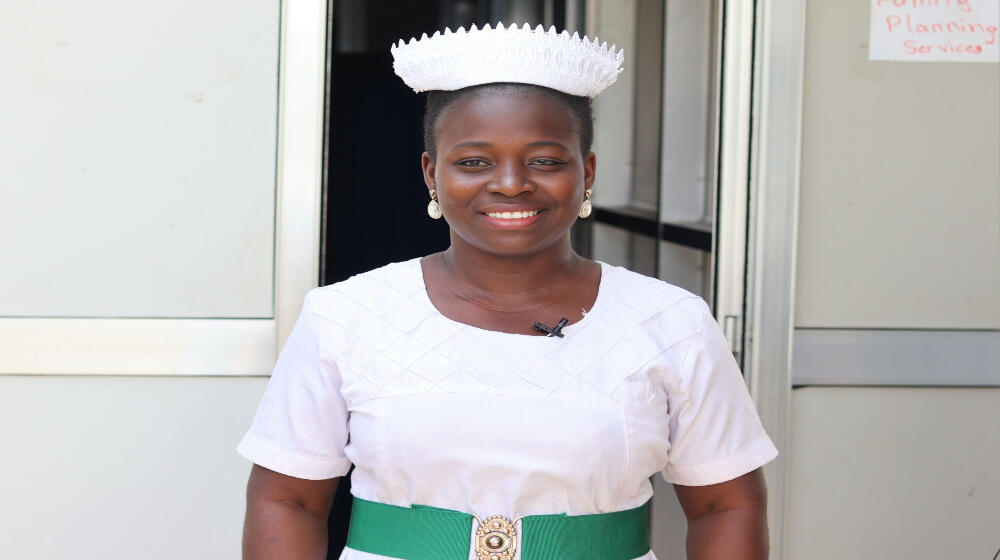When Maima Amy Pabia started using contraceptives in 2011, a year after giving birth to her first child, the decision was based on her desire to space her children and be able to further her studies.
Access to family planning is vital to preventing unplanned pregnancies and reducing risk of pregnancy or birth-related complications. It allows women and couples to choose when to start their families, space the births of their children, and stop childbearing when they have the number of children they want.
As the largest supplier of donated contraceptives in the world, UNFPA through its Supplies Partnership helped prevent an estimated 89 million unintended pregnancies, 26.8 million unsafe abortions, 254,000 maternal deaths and 1.6 million child deaths from 2008 to 2020.
In Sierra Leone, UNFPA works with the government to expand access to contraceptives and life-saving maternal health drugs for women and adolescent girls, helping to end unmet need for family planning, reduce preventable maternal deaths and empower women and youth to fulfil their potential. The agency procures over 90% of contraceptive supplies in the country. Over half a million women are currently using a modern method of contraception in Sierra Leone.
In 2022, UNFPA supported the country with the procurement of US$ 3.5 million worth of quality-assured and cost-effective contraceptives, which helped in averting an estimated 210,000 unintended pregnancies, 76,000 unsafe abortions and 1,700 maternal deaths.
Before Maima learnt about family planning, she heard many misconceptions about modern contraceptive methods from her friends. She was able to first learn about family planning from a health service provider and later further enhanced her knowledge in nursing school when undertaking a State Registered Nurse course.
The misgivings from her friends never stopped her determination of using a modern method of contraception. “My husband was not in agreement with my use of contraceptives, but I knew I needed to make that decision to be able to space my children, and for my desire to study to become a reality,” she told UNFPA ahead of World Contraception Day, a day celebrated yearly on 26 September.
This year’s theme for World Contraception Day: “A Choice for All: Different needs, different choices”, reaffirms that all women and adolescents, no matter who they are or where they are, should have access to voluntary contraceptives and choice, regardless of their circumstances.
It also underscores the critical need for women and girls to take advantage of opportunities, and have the right to make their own decisions to secure the best possible physical and mental well-being for themselves and their family.
“I continued using family planning after my second child was born as I needed to pursue my studies. I enrolled at the College of Medicine and Allied Health Sciences to read for my degree in Nursing. Subsequently, I got my degree with less pressure. It was after my studies that I opted to have my third child,” Maima explained.
For Maima, her right to decide, was invaluable for her and her family. She encourages women and adolescent girls to opt for family planning.
“Today, I have my degree and a happy family. Contraceptive use is good for the health and wellbeing of the family. It also helps in minimising the risk of complications during childbirth, and in deciding the timing and number of children you want. I will encourage women and adolescent girls to use a contraceptive method of their choice.”
Media Contacts:
John Baimba Sesay | Web and Media Analyst | UNFPA Sierra Leone | jsesay@unfpa.org


